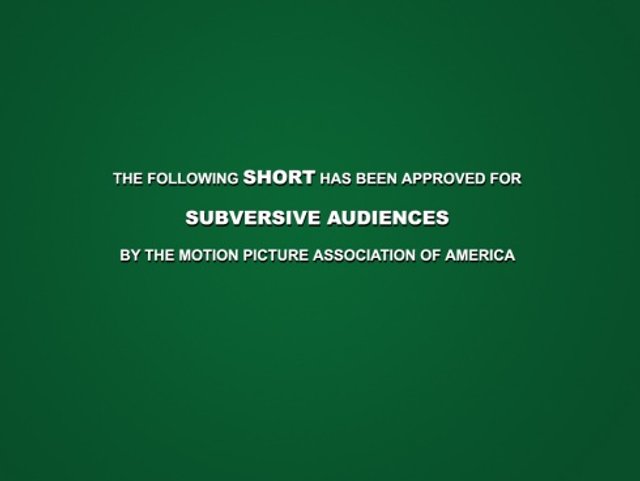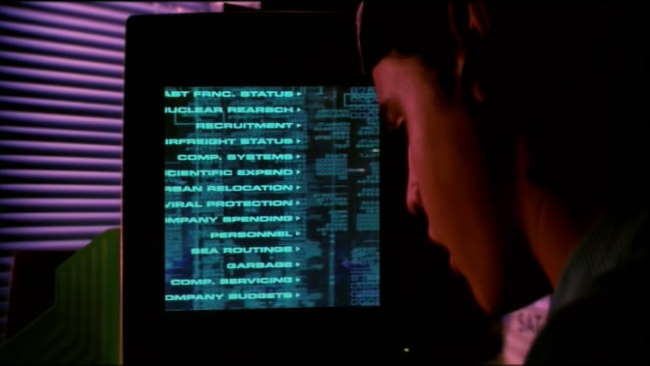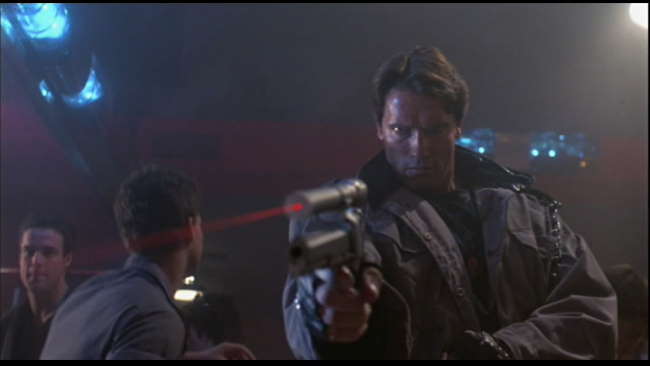October 27, 2007
Stealth (It’s not cyberpunk… and IT’S NOT GOOD!)
Movie Review By: Mr. Roboto
Year: 2005
Directed by: Rob Cohen
Written by: W.D. Richter
Degree of Cyberpunk Visuals: Very Low
Correlation to Cyberpunk Themes: Low
Key Cast Members:
Overview: We, who do reviews for Cyberpunk Review, sometimes feel the need to review such crappy media not only to let you know what is/is not cyberpunk, but what stuff is truly deserving of the label “crap.” Stealth is such a movie, as it attempts to be Top Gun, Firefox, and The Terminator in one overstuffed turkey. Jamie Foxx was better off behind a piano as music legend Ray Charles than he was in the cockpit of this doomed flight.
So why bother doing a review of it anyway? If you’ve seen the plot synopsis of Stealth as I have, you might have been tempted to call this cyberpunk, too:
The Story: The near future US military is engaged in a war against terrorism (still?), and they’re investigating any and all technologies to help strike the enemies heavily, quickly, and quietly. The result: The F/A-37 Talon, a multi-purpose aircraft that can out-shoot and out-fly any aircraft. Three pilots are selected out of four hundred applicants as they achieve perfect scores during a field test and are assigned to the aircraft carrier USS Abraham Lincoln. There, the trio learn they will be joined by a fourth, an unmanned combat air vehicle (UCAV) known as the Extreme Deep Infiltrator, EDI or “Eddie” as everyone calls it.

EDI is not just a UCAV; The “pilot” of EDI is a quantum computer with a highly advanced AI on a neuronal network. This gives EDI the ability to learn quickly, as the rest of the Talon squadron are initially instructed to teach what they know to it. It’s EDI’s appearance that triggers a debate about the use of robots in wars: How humans can appreciate the perils and ugliness of war, while machines can exceed human performance without being subject to the emotional baggage.
Negative impact of technology? Check. This ethical debate makes the first half of the movie a bit more interesting as we watch the EDI and Talons take on their first mission: The heads of three terrorist cells are meeting in Rangoon, and the squadron must take them out.
EDI gathers intelligence about the terrorists from satellites and even retinal scans (Ubiquitous access to information. OK.), and comes up with a way to take them out without innocent casualties. EDI is ordered to make the kill, but Gannon belays that order and makes the shot himself. While the squadron returns to the Abraham Lincoln, EDI is struck by lightning and starts to take on some human characteristics: EDI starts learning at an exponential rate, develops ethics and an ego, and even downloads all the music files from the Internet. Man-Machine fusion? Sounds like it.
Second mission: Terrorists have acquired nuclear warheads. The squadron must take them out, but the mission is aborted when it is discover the warheads cannot be destroyed without fallout causing civilian casualties. EDI attacks anyway, citing Gannon’s disobedience in the previous mission. The squadron is now ordered to escort EDI back to the Abraham Lincoln, take control of it, or shoot it out of the sky.
From there, Stealth degenerates into another cookie-cutter action movie that crashes and burns, like Purcell does when he tries to chase EDI. The debris damages Wade’s jet and forces her to return to the carrier, only to eject over North Korea, and leaves Gannon to hunt down EDI.
Nothing more to see. Well, maybe a little bit… If you’re looking for a focus on the underground, you’ll find nothing. Then again, you really can’t focus on the underground when doing Mach 5 above the Earth.
On the other hand, there is some evidence of someone trying to control society, at least the Navy anyway. Throughout the movie the carrier’s captain is seen talking on the phone to a Congressman who seems to have a vested interest in the EDI program. Also, after Gannon crash-lands in Alaska, some black-ops types try to kill him, but escapes with the help of EDI’s creator, Keith Orbit.
This is the problem in trying to call Stealth cyberpunk: The themes are there, just not enough to call it cyberpunk. And not enough to even call this dodo a “good movie.” Leave this bird on the runway, or stay within reach of the ejector button if you insist on watching.

Don’t worry, folks. Last weekend, I came across a DVD that sounded like it was very much cyberpunk, and I have a couple of others to watch and review, with some other titles from the forums to check, so we’ll have some real cyberpunk movies for you to enjoy.










